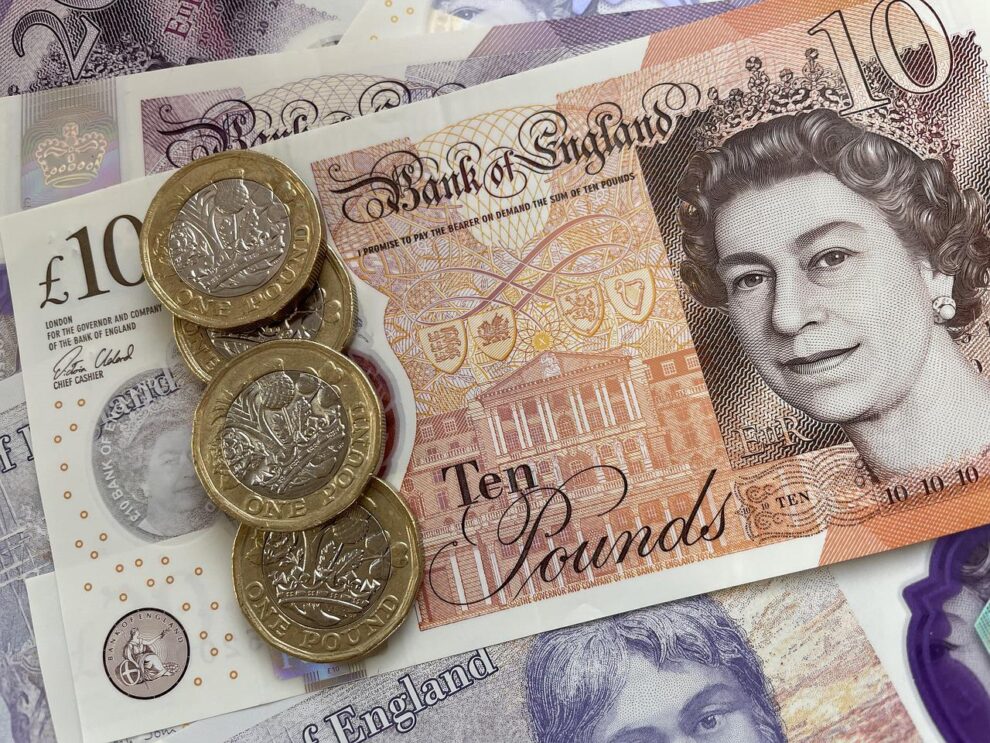
Sterling In the world of international finance, currencies are constantly in flux, responding to economic developments and policy changes. One such currency that has been making headlines recently is the British Pound (GBP), which has seen a significant decline in European trade. This decline, Sterling which marks the sixth straight session of losses against the US dollar (USD)
has raised concerns and is closely tied to speculation surrounding the UK’s interest rates.
The Sterling’s Ongoing Descent
The GBP/USD exchange rate fell by 0.1% to $1.2370, a level not seen since June 6. This decline follows a pattern of losses, Sterling with the currency pair experiencing a 0.1% loss in the previous session
making it the fifth consecutive loss. This prolonged weakening of the British Pound has been primarily attributed to concerns about a potential recession in the United Kingdom.
Sterling Bank of England’s Role
The Bank of England (BOE) plays a crucial role in shaping the economic landscape of the UK, and its monetary policy decisions can have far-reaching effects. The central bank is set to convene this week to discuss monetary policies and assess economic conditions. The main point of interest in this meeting is the expected interest rate hike of 0.25%, which would bring the rate to 5.5%.
A Pivotal Decision
This rate hike is significant as it could very well mark the conclusion of the current policy tightening cycle. BOE Governor Andrew Bailey hinted at this possibility earlier this month, stating, “The BOE is pretty close to ending its cycle of interest rate hikes according to current evidence.” The market is closely watching this meeting to gauge the central bank’s stance on interest rates and the overall economic outlook.
Sterling UK Inflation’s Influence
The decision to raise interest rates is not in isolation. It influenced by various economic indicators, one of the most critical being inflation. Today, Sterling important consumer price data for the UK will released, and the outcome of this data will undoubtedly impact the BOE’s decision.
Conclusion
In summary, the British Pound has experienced a sustained decline against the US dollar, primarily due to concerns about a potential recession in the UK. Sterling The upcoming Bank of England meeting expected to result in a 0.25% interest rate hike
possibly marking the end of the current cycle of rate increases. However, this decision is contingent on various economic factors, including inflation, which will closely monitored. Sterling The financial markets are closely watching these
developments as they seek clarity on the future direction of the UK’s monetary policy.
Frequently Asked Questions
-
Why is the British Pound declining against the US dollar?
The decline of the British Pound can attributed to concerns about a potential
recession in the UK and expectations of an interest rate hike by the Bank of England. -
What is the significance of the Bank of England’s interest rate hike?
The BOE’s interest rate hike is significant as it may mark the end of the current
policy tightening cycle, impacting borrowing costs and economic conditions. -
What role does inflation play in the BOE’s decision-making process?
Inflation is a crucial factor that influences the BOE’s decisions on interest rates. Higher inflation may necessitate rate hikes to control price levels. -
How are financial markets reacting to these developments?
Financial markets are closely monitoring the situation,
and the GBP/USD exchange rate is responding to news and expectations surrounding the BOE’s decision.
